Star Trek: The Next Generation still stands as the most well-received installment of the popular franchise, thanks largely to an amazing crew, a talented cast of actors, and some of the best scriptwriting in television sci-fi history. There are far more hits than misses, with certain episodes having taken on a pop culture status all their own.
These episodes were groundbreaking for a variety of reasons. Some were intense and moving dramas, others were gripping thrillers, and of course, many featured action-packed, exciting battles against amazing foes. Whatever the case, each season of Star Trek: The Next Generation is loaded with a barrage of top-notch hits.
Updated on October 29th, 2021 by Derek Draven: Star Trek: TNG is a smorgasbord of smartly-written sci-fi stories, and it's hard to find a bad one. It's time to take a look back at even more classic episodes that stood apart from others in the catalog and punched far above their weight class. From the very first season, Star Trek: TNG was already breaking new ground and pushing boundaries while remaining a pinnacle of modest storytelling. This is why fans keep coming back to the series years after.
20 Conspiracy (Season 1)
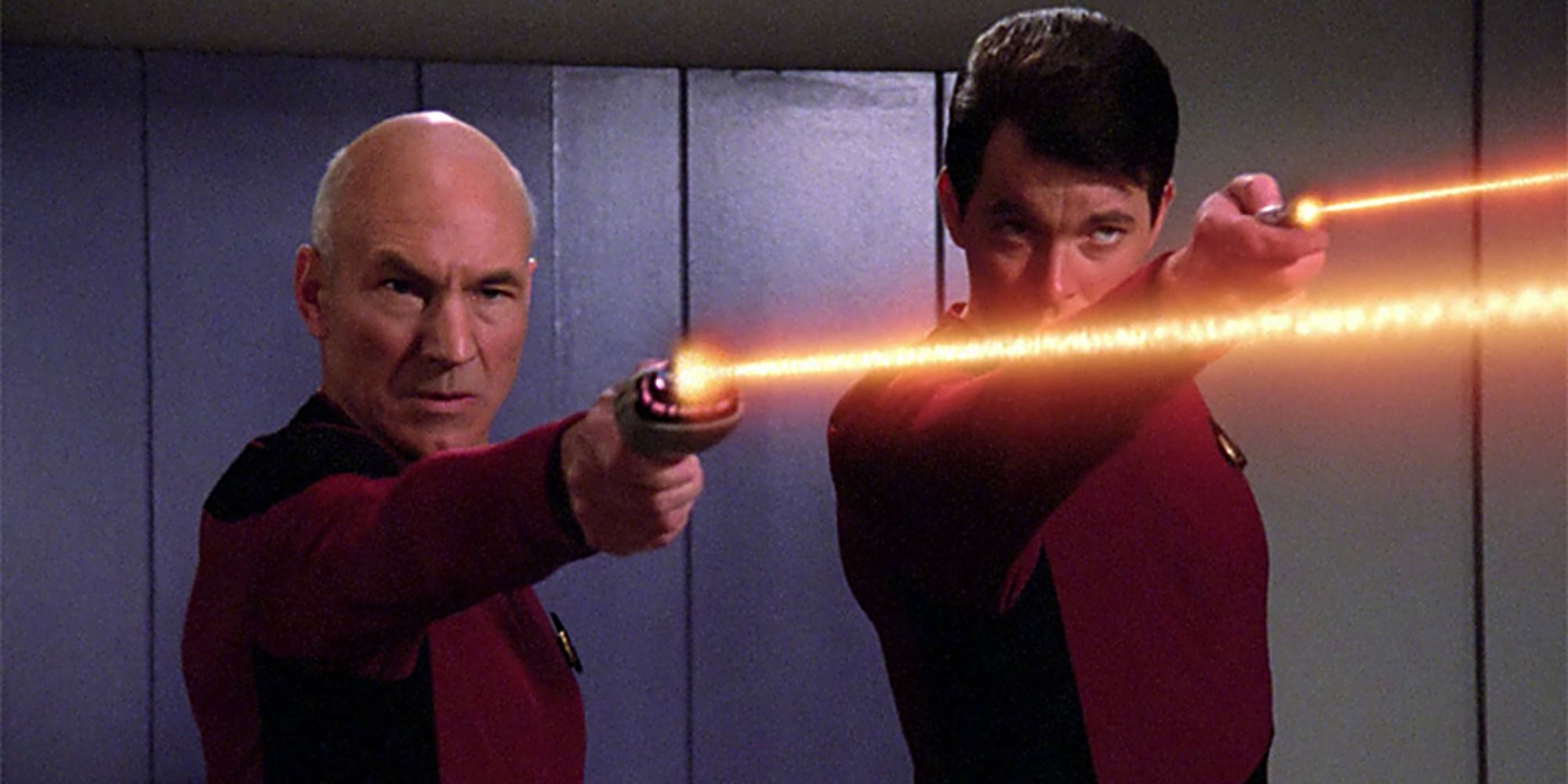
This controversial episode lives in notoriety for being one of the most frightening horror-themed TNG stories ever written. It came out at the end of season 1, shocking audiences with subject matter that focused on Starfleet Command being taken over one of the most powerful villains in TNG's history.
The story ends in brutal fashion when Picard and Riker locate the Mother alien living in the chest of a Starfleet officer and fire upon it with their phasers. The amount of raw graphic violence was positively mind-blowing for the decade in question, but the story itself is one of the most gripping, and entertaining of the show.
19 Lower Decks (Season 7)
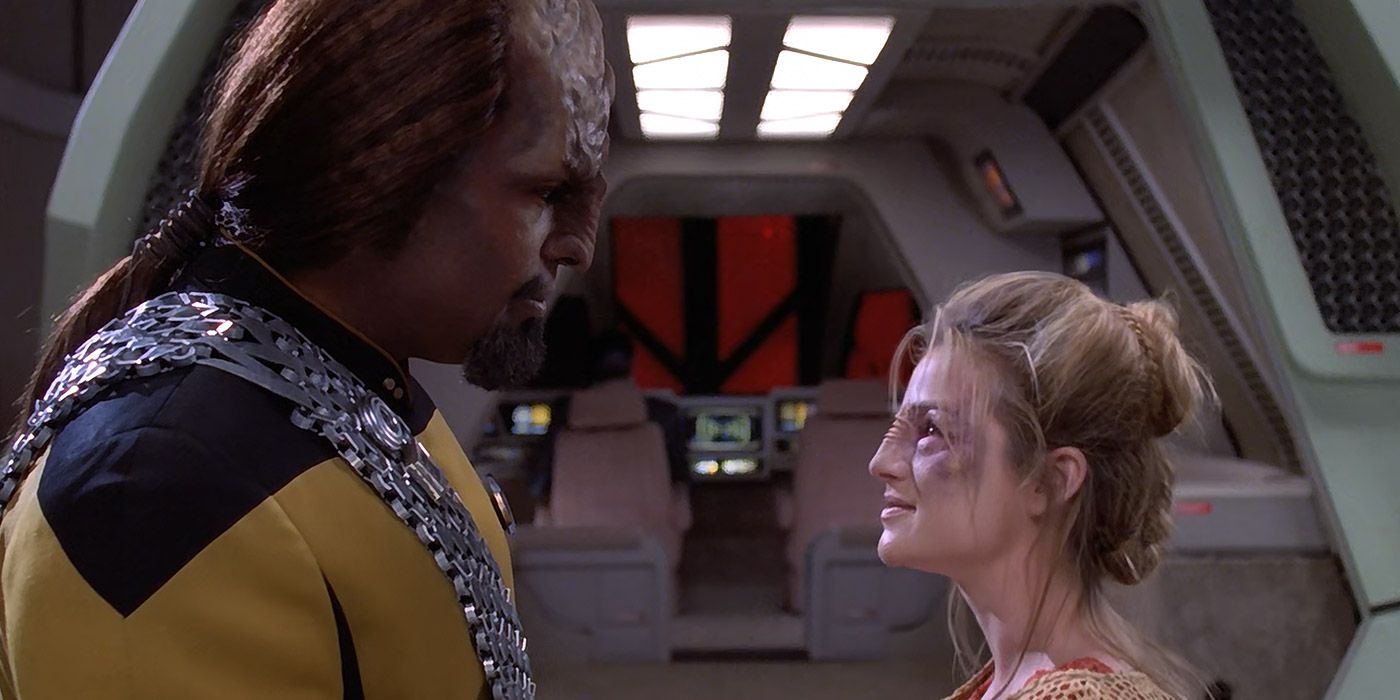
This episode offers a fresh perspective on the TNG world, shown through the eyes of a fledgling band of junior officers who are each trying to fit in. Some of these characters were meant to represent the established crew in their younger days, giving a glimpse into what it's like to try and learn the ropes on a starship.
Later, the episode moves into more tragic territory when one of the officers agrees to go undercover on a secret mission, which goes bad. It's a startling wake-up call for the other members who suddenly realize the importance of duty, honor, and valor as a Starfleet officer. It's also one example of a death that perfectly its character in Star Trek: TNG.
18 Conundrum (Season 5)
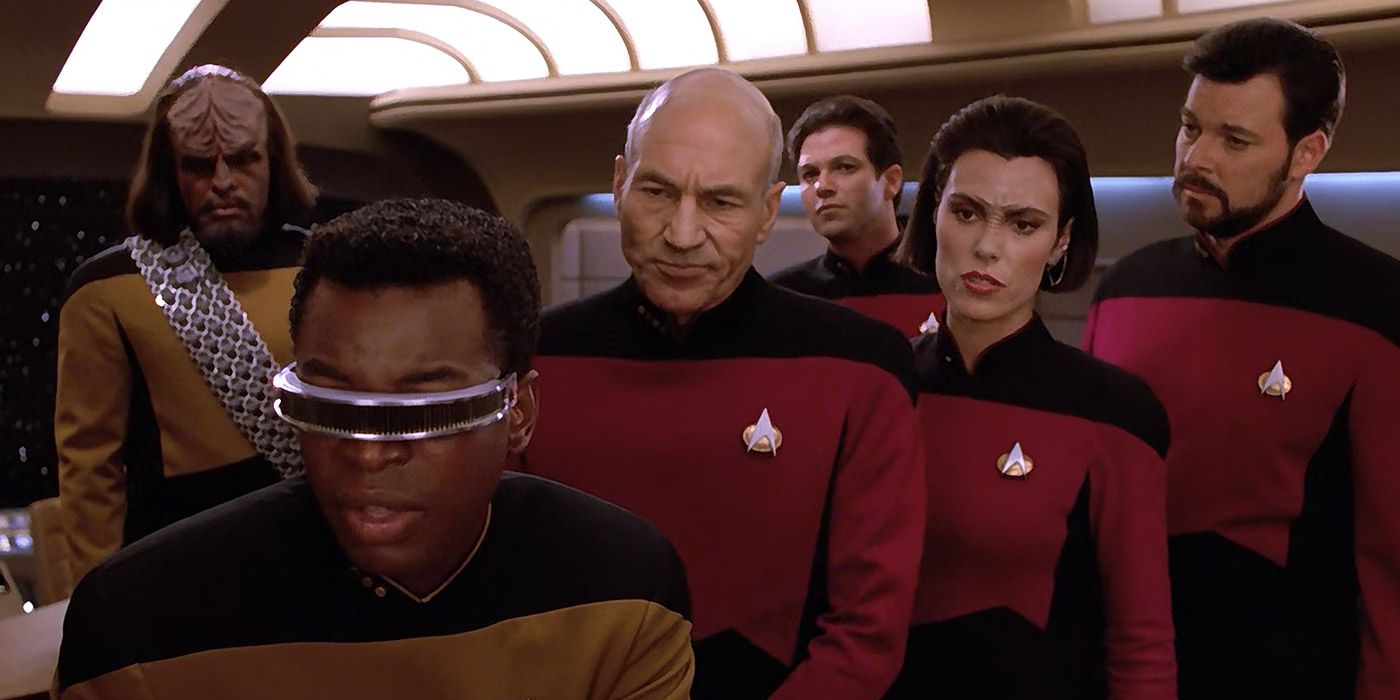
The fifth season of ST: TNG featured a number of fishbowl episodes that gave viewers a chance to learn about the characters a bit more. With "Conundrum," they got to see the Enterprise's senior officers rediscover themselves, with some surprisingly interesting results.
When an alien posing as a Starfleet officer gets on board the Enterprise, he takes advantage of the crew's amnesia to try and convince the crew to annihilate his race's greatest rival. With nothing but falsehoods to go on, the crew must trust their individual sense of morality, rather than blindly follow orders.
17 The Ensigns Of Command (Season 3)
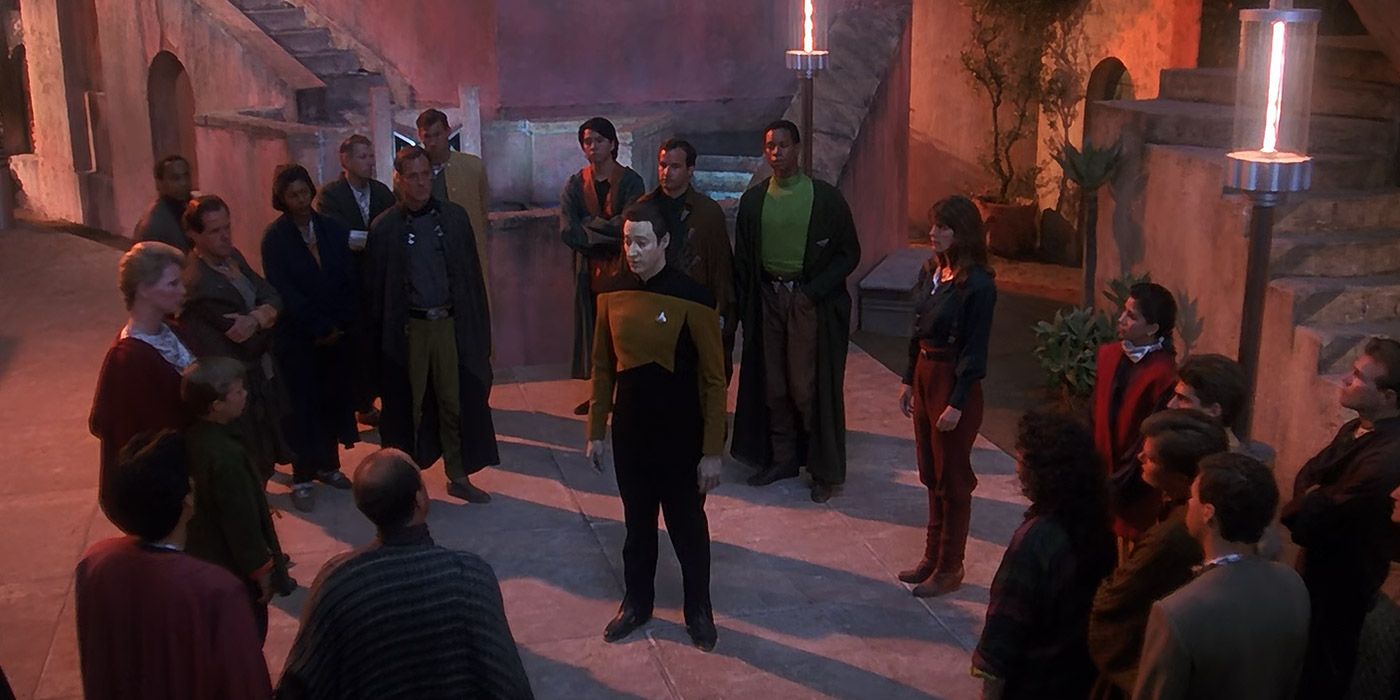
This easily digestible episode is also one of the most enjoyable to watch. It focuses primarily on Data, the only member of the crew capable of beaming down to a harsh alien planet where a human colony has somehow managed to adapt to a form of lethal radiation.
Unfortunately, an alien race has laid claim to the planet, and given the Enterprise a hard deadline to remove all humans from the planet. Racing against time, Data must find a way to overcome the stubborn colony leader's objections, before everyone is wiped out. It's notable for positing Data in a different light, where he must use wits he didn't realize he had.
16 First Contact (Season 4)
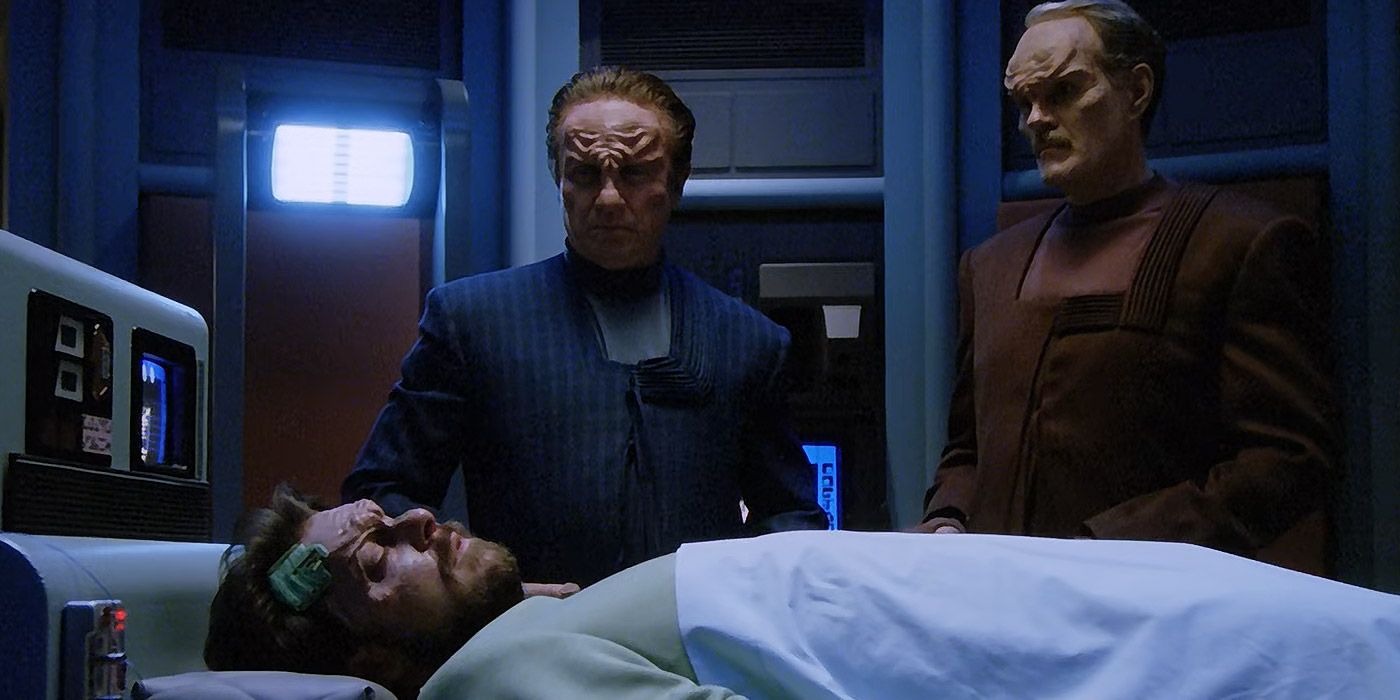
TNG took great delight in expanding the role of Starfleet and the United Federation of Planets, making them an integral part of a much larger and more populated universe. Several episodes showcased the Enterprise making first contact with new worlds, but it went horribly wrong in this particular episode.
When Riker, disguised as a Malcorian, is severely injured while on a first contact assignment, Picard needs to break protocol. He introduces himself to the Science Minister for help, and what follows is the risk of societal breakdown as Riker is interrogated, and more people in the Malcor administration realize they are not the center of the universe. It showcased the inherent dangers of making first contact with an alien civilization, which is essentially like flying blind.
15 Genesis (Season 7)

Gates McFadden (Dr. Beverly Crusher) directed this surprise season 7 gem, featuring a highly implausible, yet incredibly effective and entertaining story. Data and Picard return to the Enterprise to find that the entire crew has begun de-evolving into various primordial species, each more horrific than the last.
The episode is notorious for a scene featuring Picard and Data in the engineering section, where the former is attacked by a half-arachnid Barclay from behind a pane of glass. It's an effective jump scare that gives audiences the willies to this very day.
14 Chain Of Command (Season 6)
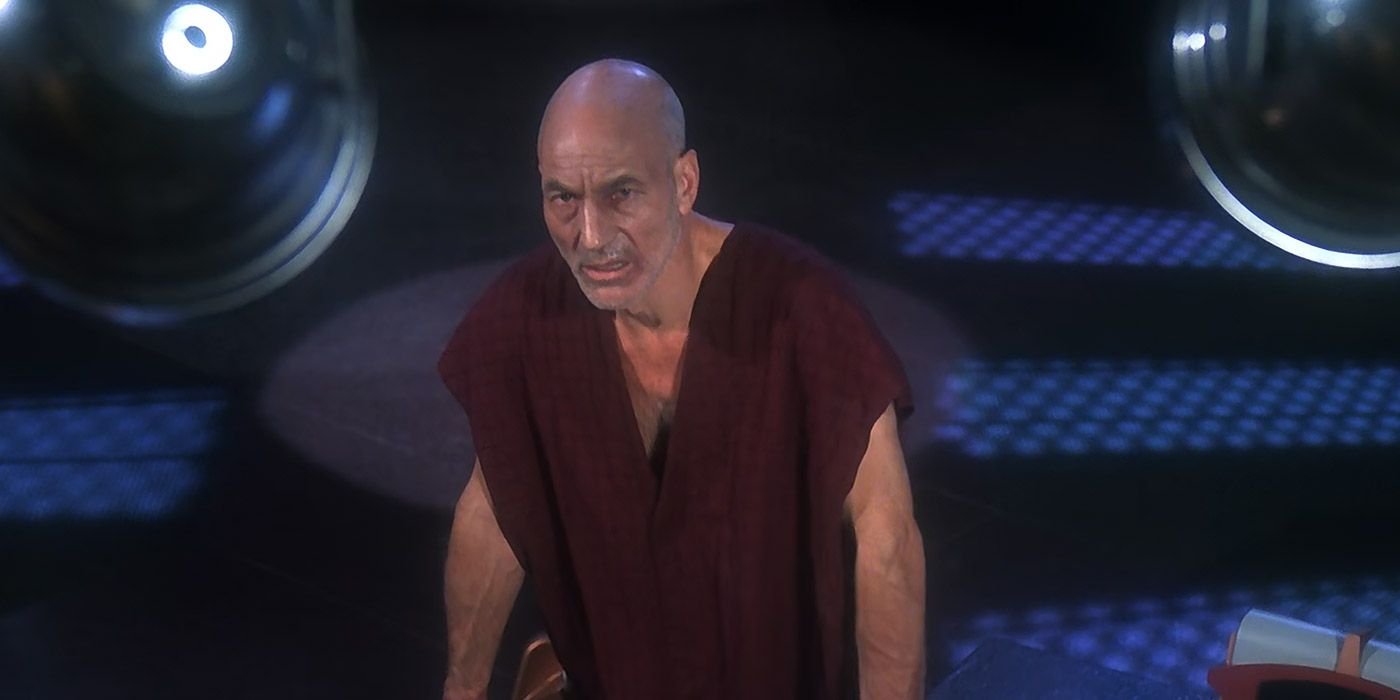
This double-episode story brought Picard down to his worst point, courtesy of the sadistic Cardassians. It all happens when Picard is taken prisoner during a black ops Starfleet mission, which turns out to be a trap. In the meantime, the Enterprise is commanded by a Captain who ends up banging heads with Commander Riker.
It's a tense story, especially during the second episode when Picard's Cardassian tormenter begins turning up the temperature, inflicting physical and psychological pain on him, in the hopes that he'll crack. The subject matter is very, very dark, particularly when it comes to the social messaging about the use of torture by military forces.
13 All Good Things (Season 7)
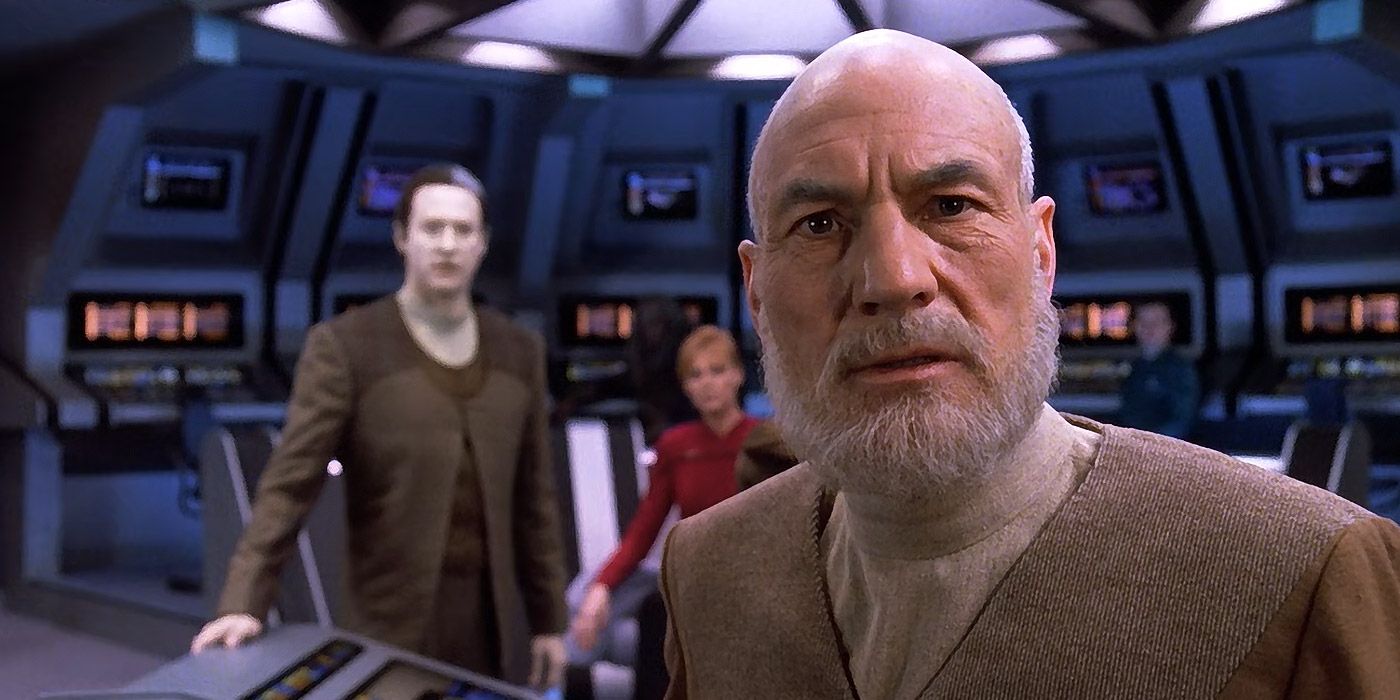
After seven seasons, Star Trek: TNG ended with "All Good Things," a two-part closer that paved the way for the series to make the jump to Hollywood cinema. In this final story, Picard jumps through several points in his own timeline, while trying to figure out what's happening to him.
The episode is notable for bringing the series full circle, right back to where it started, with Q at the forefront. The fate of the entire universe is at stake in the story, and the Enterprise crew is forced to come together and pool their wisdom to prevent an unfathomable catastrophe from occurring.
12 I, Borg (Season 5)
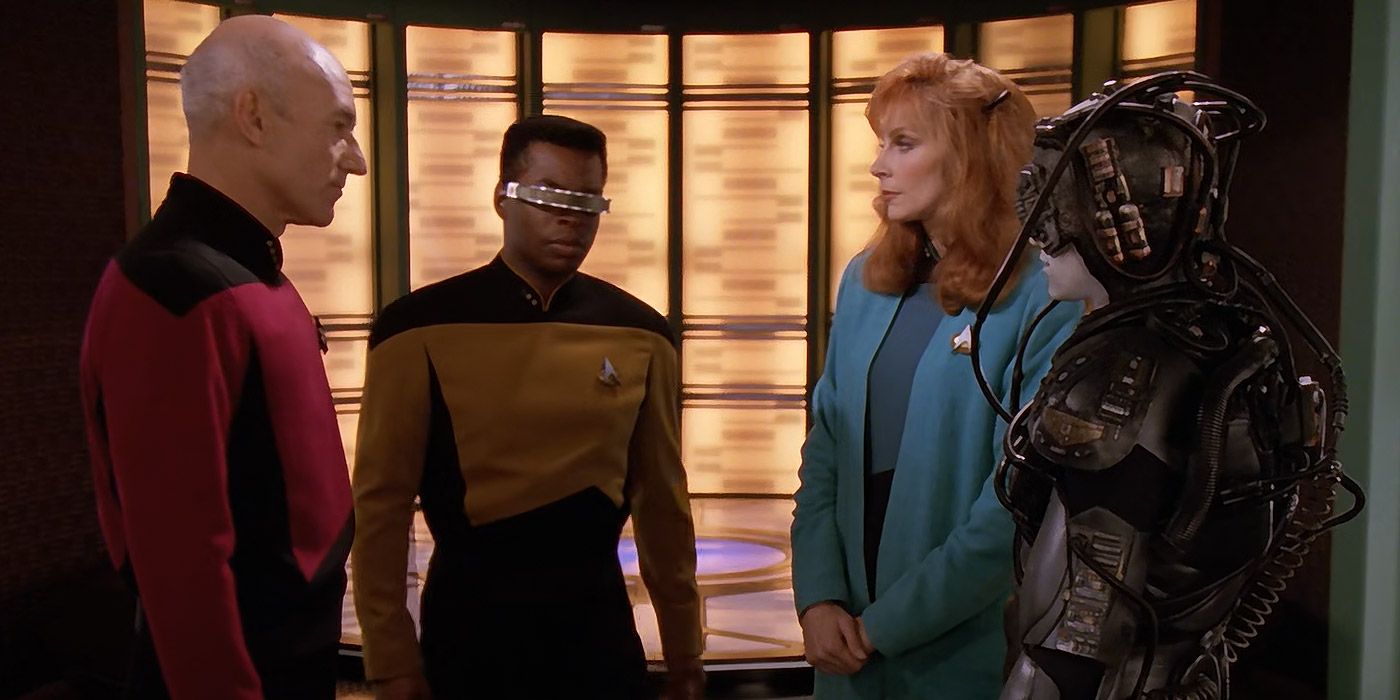
After the terrifying battle with the Borg on the doorstep to Earth, Picard was left traumatized by the experience. It was ironic, then, that the Enterprise crew would find themselves rescuing a damaged Borg, whom they decided to name "Hugh." The episode goes far beyond just an individual Borg, however.
Picard's hatred of the Borg was only starting to show at this point, and the episode helped establish it. On the flip side, Hugh's transformation from a mindless drone to a free-thinking individual would force many of the characters to rethink their prejudices. This episode would set up a character arc that would finish decades later in the first season of the lukewarm spinoff Star Trek: Picard.
11 Sins Of The Father (Season 3)
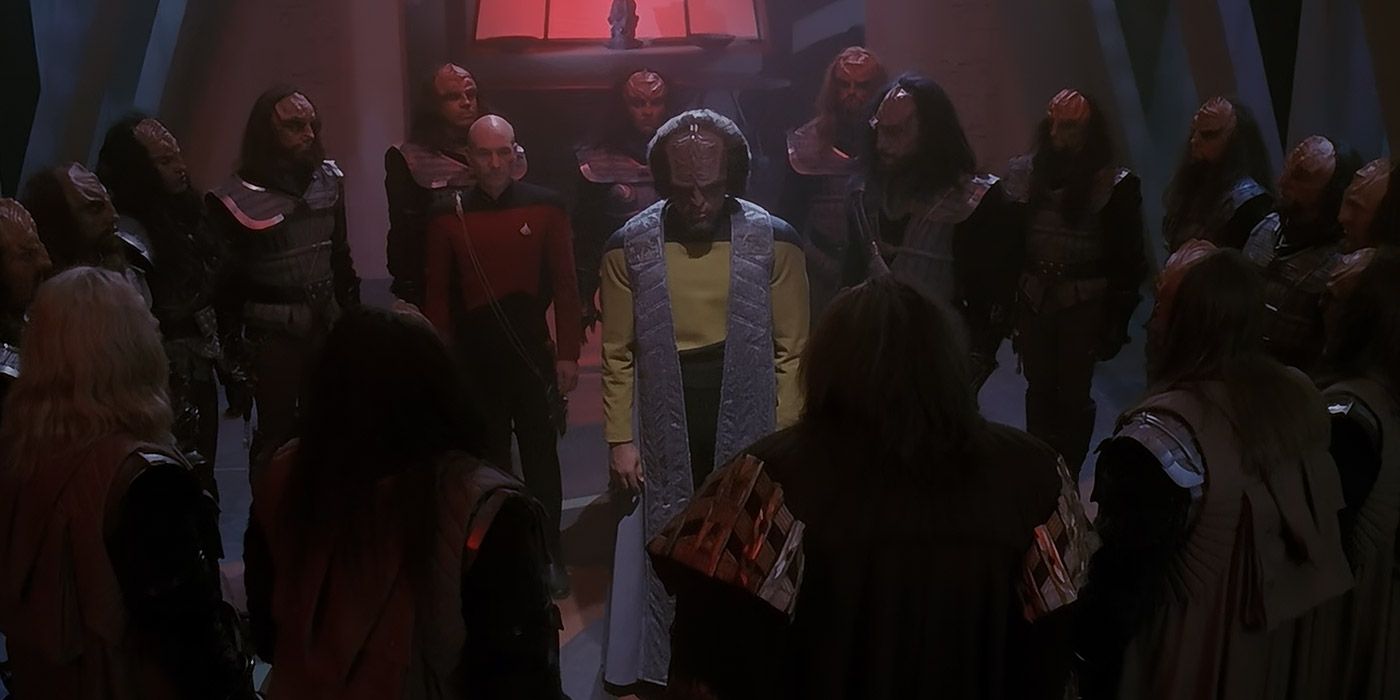
"Sins of the Father" was an episode that took audiences on a journey to the Klingon homeworld and dove deep into its warrior culture. The episode revolves around Worf's deceased father, who has since been branded a traitor after supposedly colluding with Romulans at the infamous Khitomer Massacre incident that took place years before.
Worf heads to his homeworld to challenge this lie, with Picard standing at his side. What they uncover, however, is a terrible political scandal that places Worf in a very difficult position. Either he shares the blame for his father's actions, and is labeled the son of a traitor, or the Klingon Empire risks a devastating civil war that would tear it apart.
10 Darmok (Season 5)
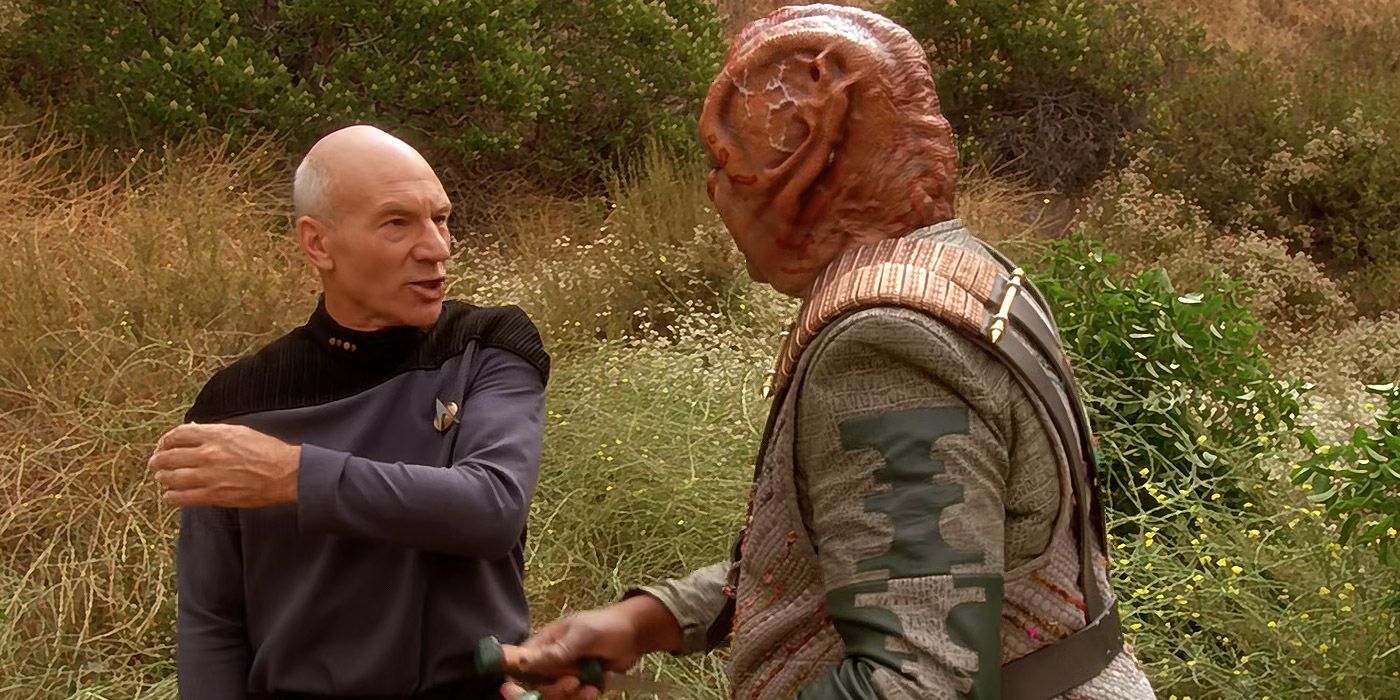
Throughout Star Trek, first contact situations are always tense and confusing. However, few are as unique and harrowing as meeting the Tamarians in "Darmok". Though the species had been trying to make contact with the Federation for weeks, their unorthodox linguistics made it almost impossible. The universal translator could communicate their words, but not the context behind them, which is the theme of the story.
Both Picard and a Tamarian Captain are beamed down to the surface of a planet, where they must work together to survive against a terrifying monster. Along the way, Picard learns to overcome language barriers and forge a communicative bridge with the other Captain, which is a beautiful and uplifting lesson of solidarity for humankind as a whole.
9 Tapestry (Season 6)

The cosmic entity known as Q was the first real villain the Enterprise ever encountered in TNG, but "Tapestry" paints him in a much different light. The episode involves Captain Picard dying on the sickbay operating table, where his dead spirit is intercepted by Q, himself.
Picard's former nemesis gifts Picard with the chance to redo his life all over again and correct a series of mistakes he made in his youth. In so doing, he ends up carving out a much worse future for himself, which he instantly regrets. It's an excellent episode with a strong message about how choices, both good and bad, help shape a person's character.
8 The Offspring (Season 3)
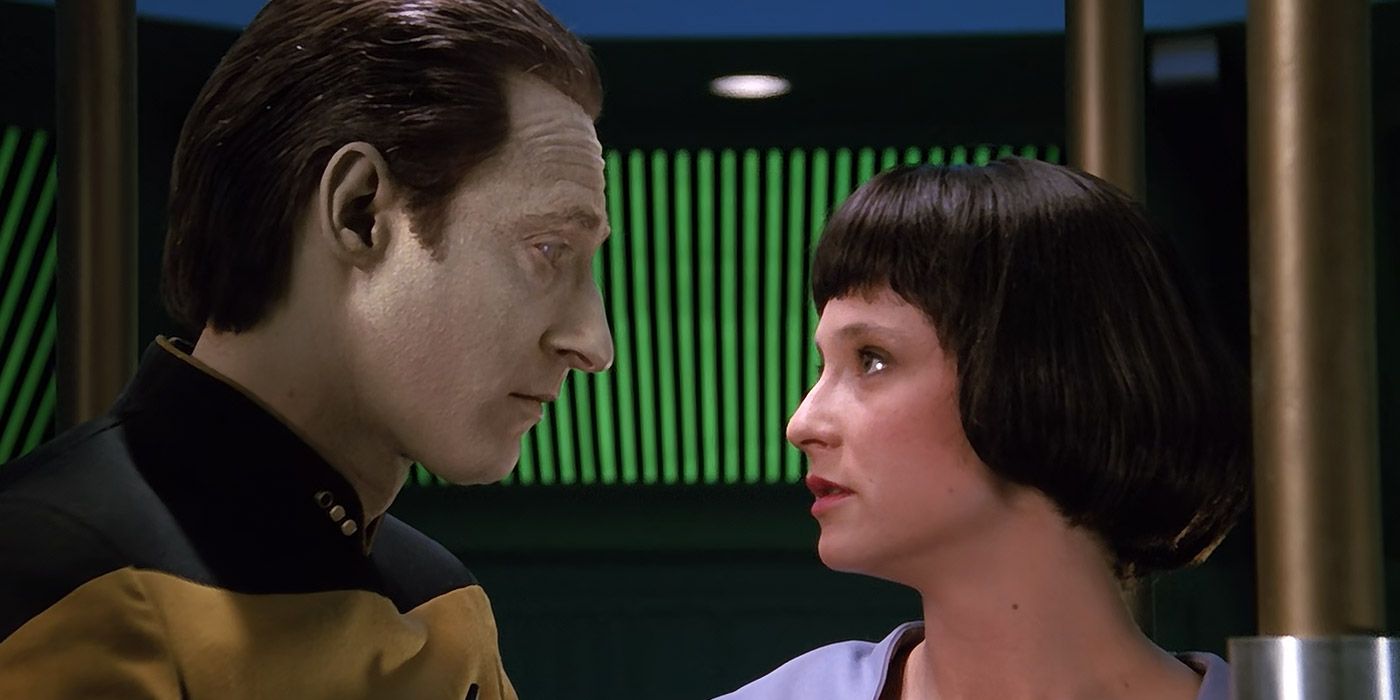
Data was a major focus of The Next Generation, but the writers needed to find new ways to expand on his character. One way was giving Data a daughter - an android of his own construction, meant to exceed his own abilities. This android was known as Lal, which means "beloved" in Hindi.
It's a warm, touching episode featuring a close bond between father and daughter, and the way Data grows from the experience. It's also the saddest TNG episode of all time, with a final act that caused audiences to weep all the tears that Data was unable to. Even decades later, it's still a powerful and moving story.
7 The Hunted (Season 3)
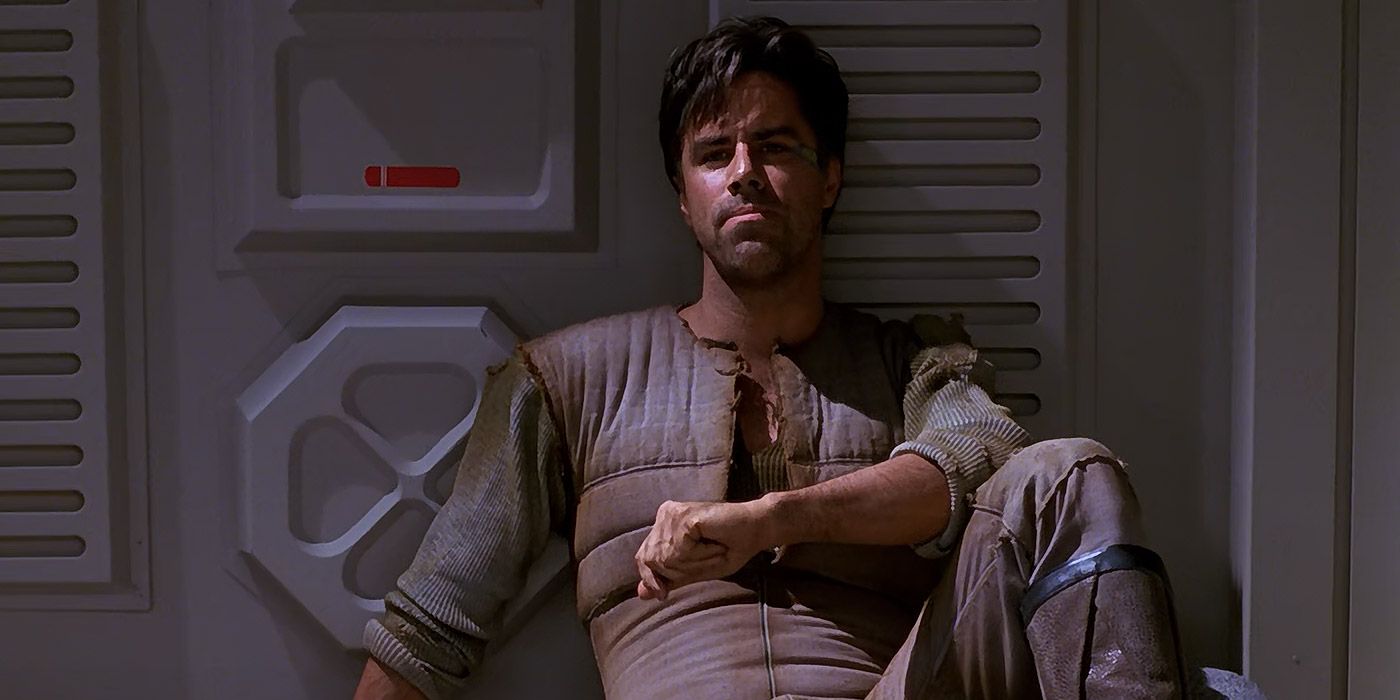
No other episode contains as much action and riveting tension as "The Hunted," focusing on an alien super-soldier who breaks out of a maximum-security prison. The Enterprise decides to lend a hand, but they are baffled when the soldier manages to elude them, using a sophisticated array of tactics.
Picard soon learns that the planet's government created these super-soldiers, without knowing how to reverse their highly dangerous killing instincts. It's a social commentary about the horrific treatment of Vietnam veterans who returned home to America, only to be shunned and discarded by their people, and their governments.
6 Booby Trap (Season 3)
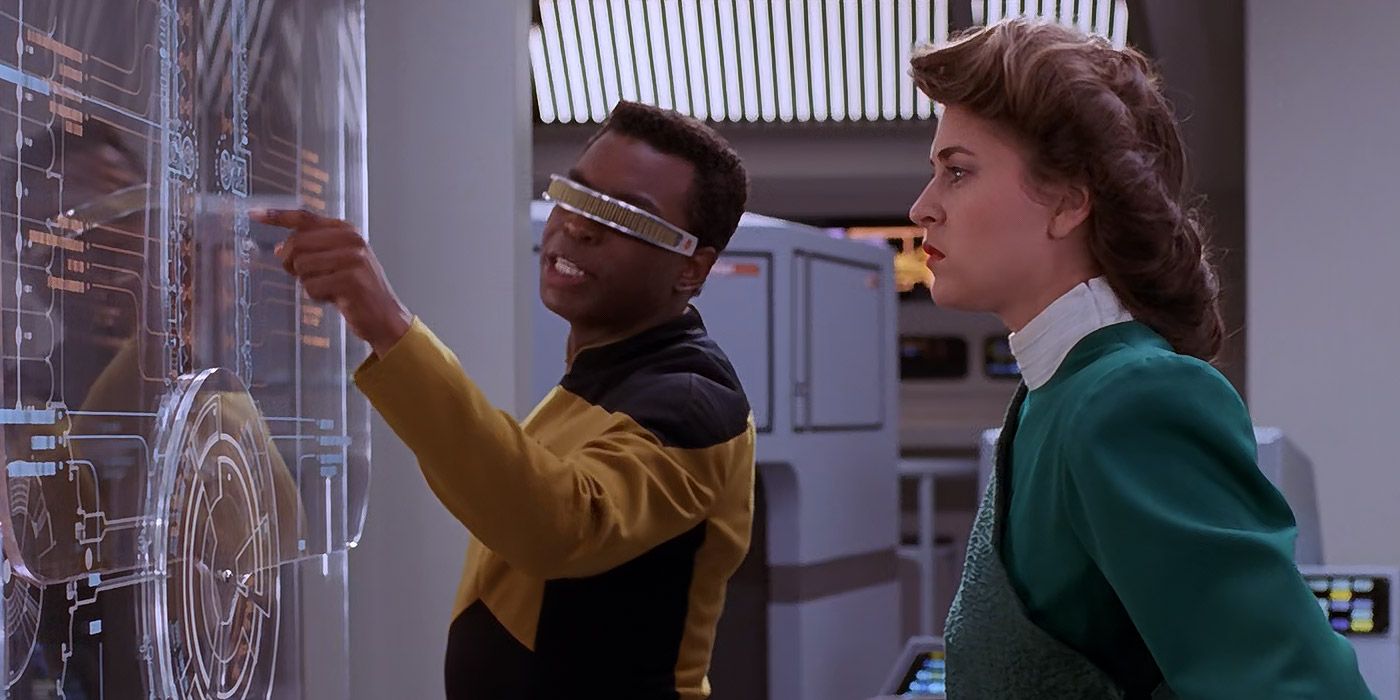
This tense, enjoyable episode finds the Enterprise caught in a centuries-old booby trap laid by an ancient alien race. As they expel more power to try and free themselves, the trap becomes more lethal and threatens to destroy the crew. Geordi La Forge has just a few hours to come up with a solution, and he decides to load a physical representation of a beautiful Starfleet propulsion designer to help him.
"Booby Trap" is smartly written, very unnerving, and ultimately satisfying, thanks to its final act. It puts Captain Picard in the driver's seat, and against all odds, he manages to beat the trap by using one of the single-coolest techniques of any TNG episode.
5 Cause And Effect (Season 5)
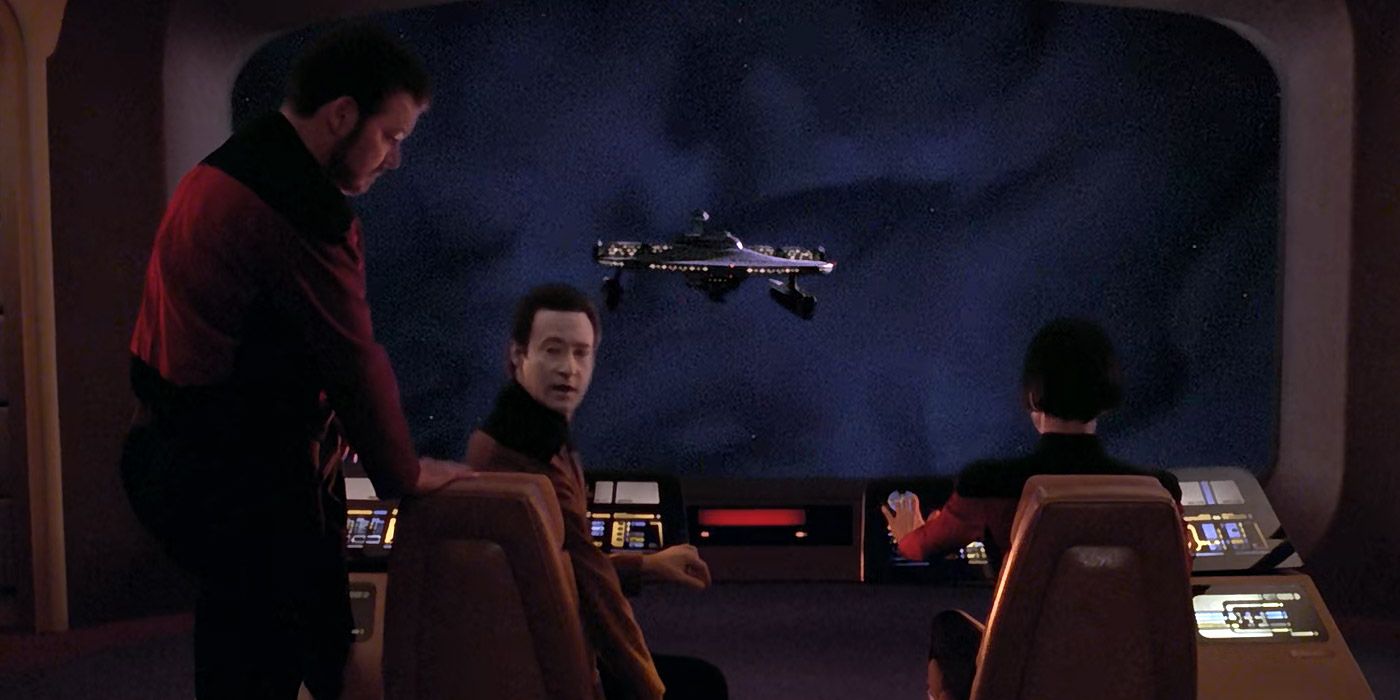
"Cause and Effect" was a directing challenge for Riker star Jonathan Frakes, but it proved to be one of the coolest and most ingenious episodes of the entire show. The episode begins with the Enterprise on fire, right before it explodes, setting up a terrifying introduction that left audiences on the edge of their seats.
When the opening credits are finished, it's quickly revealed that the Enterprise has become caught in a temporal causality loop, ending with the ship's destruction. Each time the loop resets, the crew remembers more, via a sense of deja vu. It's a haunting and disturbing trek down the corridor of time, and it ends with one of the best solutions in a Star Trek story.
4 Yesterday's Enterprise (Season 3)
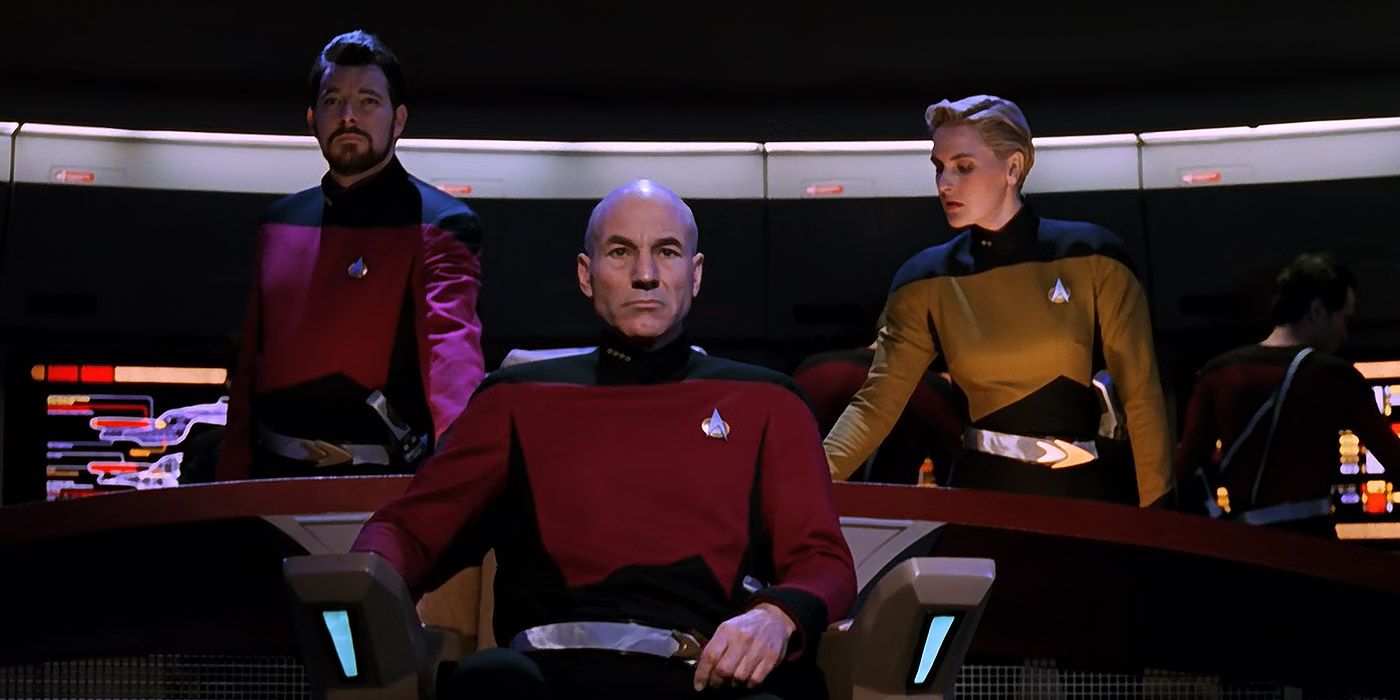
This episode is arguably the most popular in TNG history and remains a must-have staple for fans of the show. "Yesterday's Enterprise" throws the crew into an alternate future timeline where the Federation is on the brink of collapse, following a massive war with the Klingon Empire.
Picard learns that the culprit is the ship's predecessor, the Enterprise-C, which escaped through a rift in time following a decisive battle with the Romulans. The exit from the battle irrevocably changes the future for the worse, and it's up to the Captains of both ships to set history right, once more.
3 The Best Of Both Worlds (Season 3 & 4)
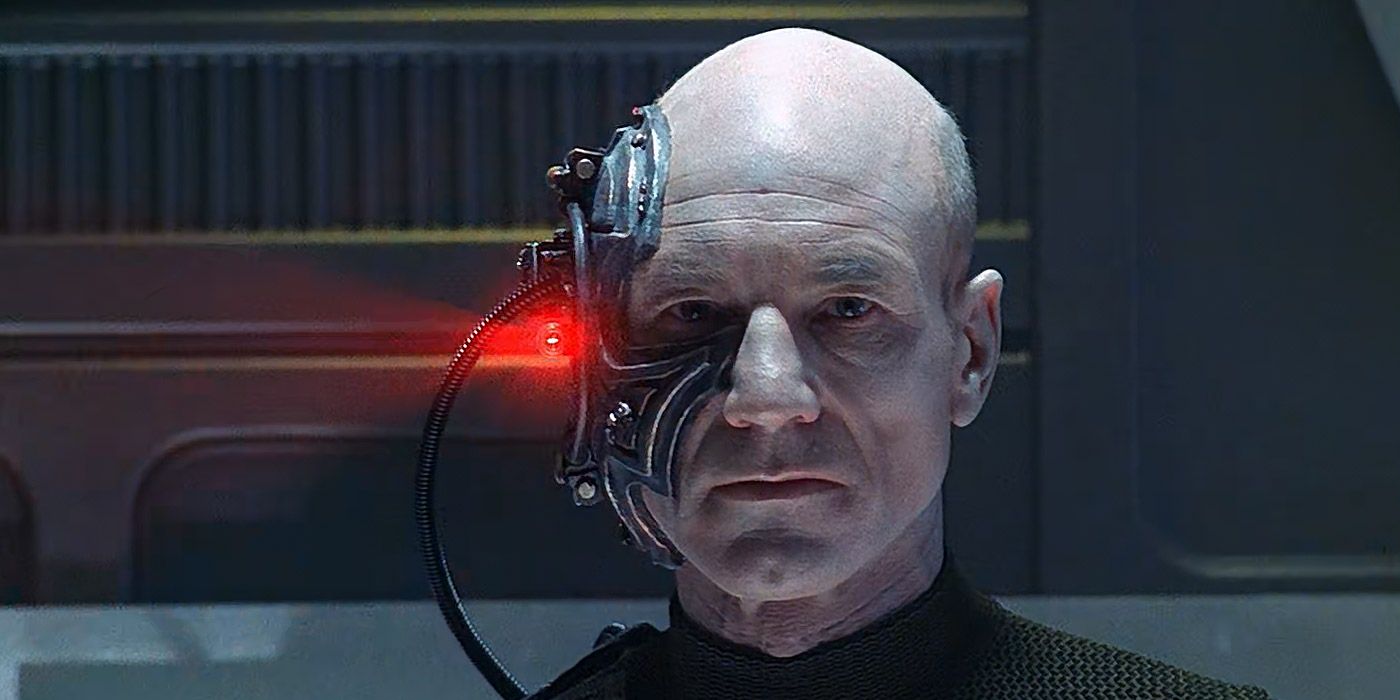
After audiences were introduced to the terrifying Borg in season 2, it was only a matter of time before they made a reappearance. The season 3 finale brought them back in a big way, with the Borg launching an invasion of Federation space. Once again, the crew faced down an overwhelmingly powerful foe that could not be stopped.
The most pivotal moment in the story occurs when Picard himself is seized by the Borg and turned into a nightmarish drone named Locutus, designed to speak on their behalf. The cliffhanger was so intense, that many speculated whether Picard would survive into the next season. It certainly ranks as the highest-rated Borg episode of Star Trek: TNG.
2 The Inner Light (Season 5)
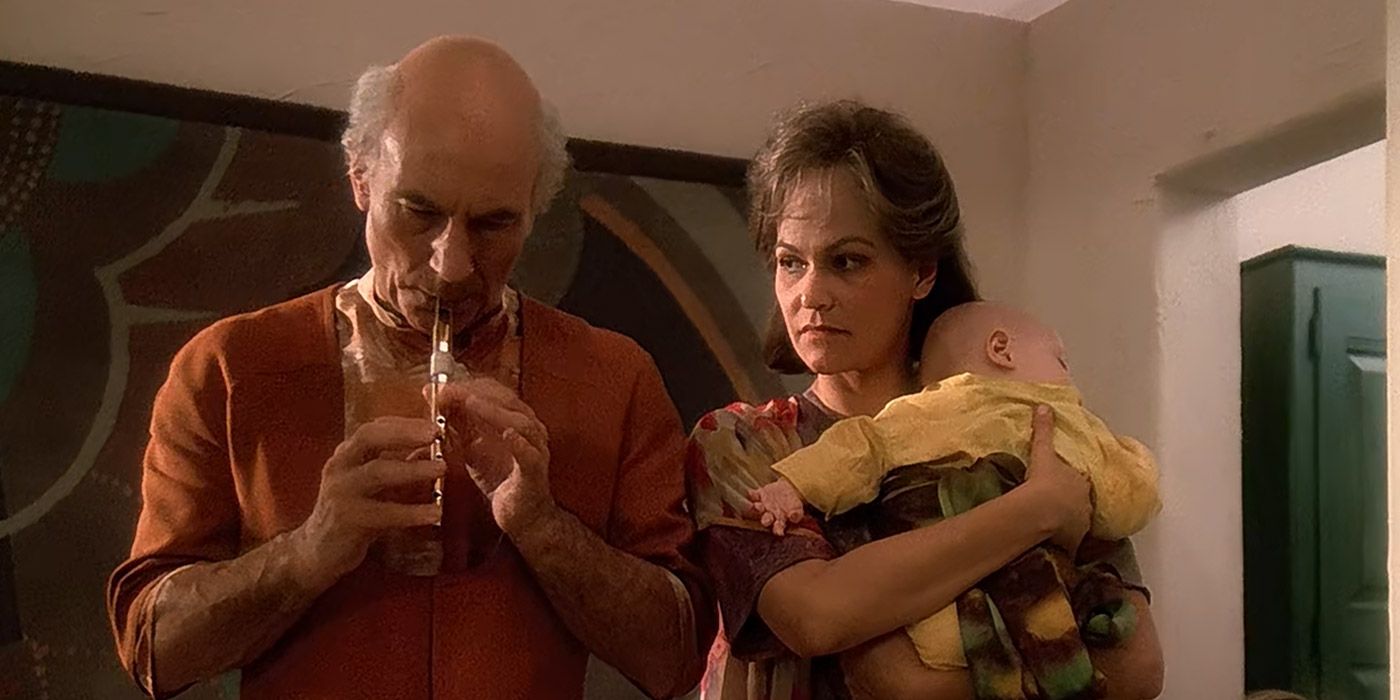
Arguably one of the best Star Trek: TNG episodes, and beloved by all fans, is "The Inner Light." The story involves Picard experiencing an entire lifetime on an alien planet, after being probed by a spatial time capsule. As a man named Kamin, Picard becomes a charming scientist and musician who is married to the patient and lovely Eline. They live on Kataan, an unstable planet trying to figure out a way to escape a catastrophe that will one day destroy the entire race.
The entire experience takes place in a matter of minutes, but to Picard, it's a lifetime of memories where he has children, grows a family, and pursues his work as a scientist. It's a bittersweet story that ends with a beautiful resolution, and one of the most tear-jerking final scenes of any single TNG episode, ever.
1 The Measure Of A Man (Season 2)
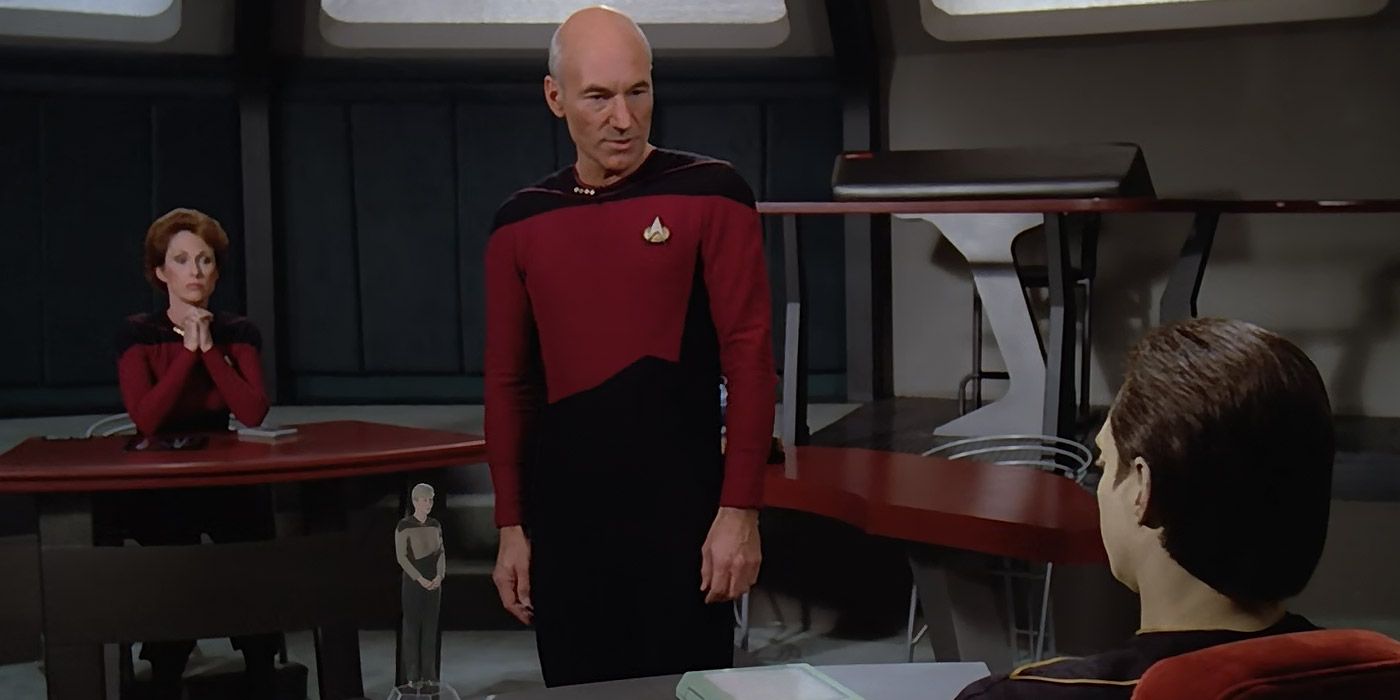
This season 2 gem is one of the absolute best in the series, and an example of when Star Trek: TNG tackled important social issues with an effective message. The story revolves around the concept of whether Data is truly the property of Starfleet, and if he can be ordered to undergo a procedure that may risk his life.
Not willing to stand back and let it happen, Picard acts as his legal counsel, and he officially defends the rights of Data as a sentient being. It's a fascinating read into complex philosophical matters that border on the meaning of life itself. By the time the episode ends, the scope of the message becomes much, much larger than just one simple android's rights.
from ScreenRant - Feed https://ift.tt/2NO6wIT
via IFTTT
No comments:
Post a Comment